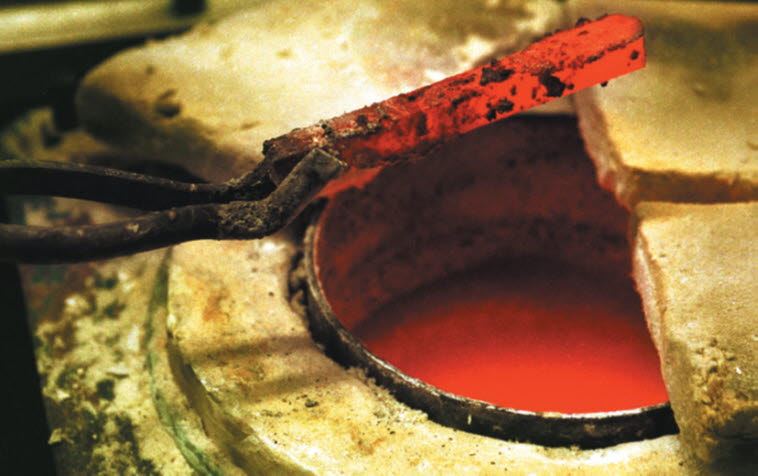Areas of expertise within high temperature materials offer research and development in the following fields:
- Carbon Technology (Anodes, cathodes, ramming paste, coke and pitch)
- Refractories and Ceramics (Oxides, nitrides, carbides; thermal insulation materials; development and testing)
- Failure Analysis (Identification of failure and deterioration mechanism(s) in industrial refractory linings)
The equipment needed for testing and analysis of all materials mentioned above includes sample preparations, cutting devices, milling, furnaces up to 1800 °C, XRD and XRF analysis, AAS, ICP and IC for elemental analysis, LECO for O and N determination, Electron microscopes and optical microscopes with image analysis and CT analysis. Physical tests includes equipment for measurements of porosity, density, thermal conductivity, thermal expansion, modulus of rupture, cold crushing strength, electrical resistivity and air permeability. For carbon and ramming paste materials we use some special equipment such as Na expansion Rapoport test furnace, Na-gravimetric test furnace and rammability unit for ramming paste tests.
Equipment
- Na-Rapoport test furnace
- Na-gravimetric test furnace
- Laser Flash LFA457, thermal conductivity up to 1100 °C
- LECO for O and N content
- Hot wire method for thermal conductivity
- Furnaces up to 1800 °C, several dimensions
- Optical dilatometer
- Tomography for 3D-imaging (CT)
- Optical microscopy with image analysis
- Electron microscopes (e.g. SEM, EMPA and TEM)
- XRD and XRF
- Sidelining test cell, chemical resistance test 50 h.
- Wetting apparatus for materials-liquids with and without polarization
Technical specifications
- Density and porosity (ISO 12985-1/2, ISO 21687 for carbon and ISO 5016 and ISO 5017 for refractories)
- Air permeability (ISO 15906)
- Crushing strength (ISO 18515)
- Bending/shear strength (ISO 12986-1)
- Dynamic Young's modulus (ASTM C1198-11)
- Electrical resistivity (ISO 11713)
- Linear thermal expansion, CTE from 20-950 °C (ISO 14420)
- Crystallite size, Lc and d002 using XRD (ISO 20203)
- Ash content (DIN 51903)
- Cryolite resistance cup test (ISO 20 292-2009)
- Cold crushing strength (ISO 8895, PRE R/14)
- Permanent change in dimensions on heating (ISO 2477/2478)
- Thermal conductivity by hot wire (ISO 8894-1) and laser flash method
- Rammability (ISO 17544)
- Loss on baking (ISO 20202)
- Expansion/shrinkage during baking (ISO 14428)
Other relevant tests and analysis on request. We also design test methods upon request and needs.

